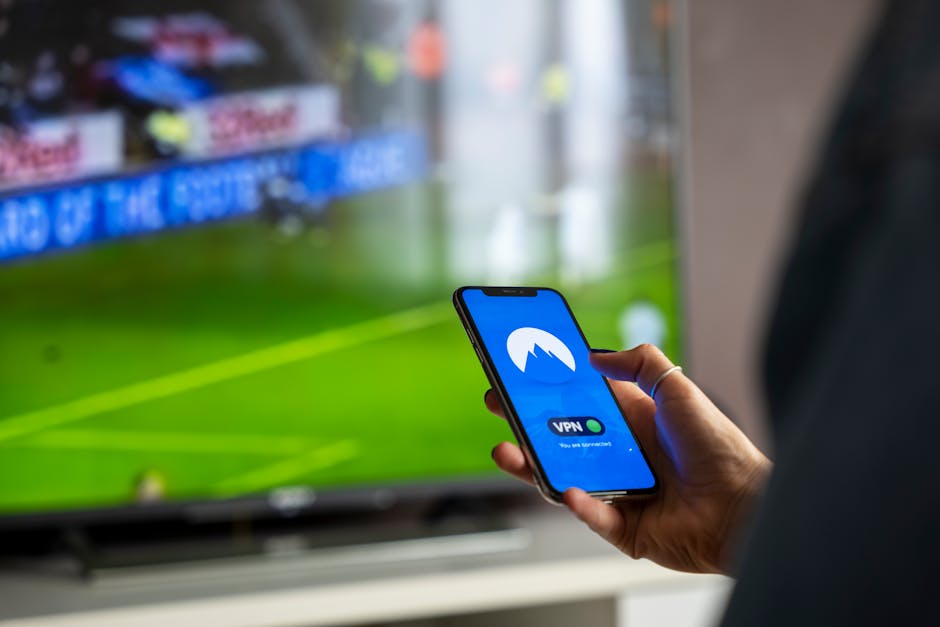How to Use VPNs Effectively to Protect Your Online Identity
Using a Virtual Private Network (VPN) is a vital step in protecting your online identity. VPNs create a secure connection between your device and the internet, masking your IP address and encrypting your data. This ensures that your online activities remain private and secure, especially when using public Wi-Fi networks.
Understanding How VPNs Work
VPNs function by routing your internet traffic through an encrypted tunnel to a remote server operated by the VPN provider.

This process hides your real IP address and makes it appear as if you are browsing from a different location. Here's a simplified explanation:
- Encryption: Your data is encrypted before it leaves your device, making it unreadable to anyone who might intercept it.
- Tunneling: The encrypted data is sent through a secure tunnel to the VPN server.
- Decryption: The VPN server decrypts the data and forwards it to the intended destination.
This mechanism provides anonymity and security, which is essential for maintaining privacy online.
Selecting the Right VPN Provider
Choosing a reliable VPN provider is crucial for effective protection. Consider the following factors:
- Privacy Policies: Ensure that the provider has a strict no-logs policy, meaning they do not keep records of your online activities.
- Server Locations: A diverse range of server locations can help you bypass geo-restrictions and access content from different regions.
- Speed and Performance: Opt for providers known for their fast connection speeds to avoid buffering and slow downloads.
- Security Features: Look for features like kill switch, DNS leak protection, and strong encryption protocols (e.g., OpenVPN, IKEv2).
An excellent resource to compare different VPN providers is PCMag, which offers detailed reviews and comparisons.
Setting Up Your VPN
Once you've selected a VPN provider, setting up the service is straightforward. Follow these general steps:
- Download and Install: Download the VPN application from the provider's website and install it on your device.
- Create an Account: Sign up for an account if required, often involving email verification.
- Select a Server: Choose a server location based on your needs—whether for accessing content from a specific country or ensuring the fastest connection speed.
- Connect: Click on the connect button to establish a secure connection through the VPN.
Practical Tips for Using VPNs
Using a VPN effectively requires some best practices to maximize security and performance:
- Avoid Free VPNs: Free VPN services often compromise on security, speed, or privacy policies. Opt for reputable paid services instead.
- Regularly Update Software: Keep your VPN software updated to benefit from the latest security patches and features.
- Use Multi-Factor Authentication (MFA): Enable MFA on your VPN account to add an extra layer of security.
- Avoid Public Wi-Fi Without a VPN: Public Wi-Fi networks are prime targets for cybercriminals. Always use your VPN when connected to such networks.
The Role of VPNs in Various Scenarios
Apart from general browsing privacy, VPNs serve other specific purposes such as:
| Scenario | Benefit of Using a VPN |
|---|---|
| P2P File Sharing | Masks IP address to avoid tracking by ISPs or malicious entities. |
| Streaming Services | Bypasses geo-restrictions to access content available in other regions. |
| Remote Work | Securitizes connections to corporate networks, protecting sensitive business data. |
| Censorship Circumvention | Enables access to websites and services blocked in certain countries. |
| Traveling Abroad | Keeps personal data safe while using unfamiliar networks in foreign countries. |
Troubleshooting Common Issues
If you encounter problems while using your VPN, consider these troubleshooting steps:
- No Connection: Restart your device and router, or switch to a different server within the VPN app.
- Slow Speeds:: Change to another server closer to your physical location or check if there are any background applications consuming bandwidth.
- Connection Drops Frequently: :Enable features like auto-reconnect or use servers with lower load.
- Unable to Access Certain Websites: :Clear your browser cache or try switching browsers.
- IP/DNS Leaks: :Use online tools like DNSLeakTest.com to check for leaks and adjust settings in your VPN app accordingly.
Remember that while these tips can resolve common issues, you should always refer to your provider's support documentation or customer service for specific guidance.
VPNs play an essential role in safeguarding online identity by encrypting data and masking IP addresses. Selecting a reputable provider with robust privacy policies and security features enhances this protection. Setting up a VPN involves straightforward steps, while practical usage tips ensure optimal performance.